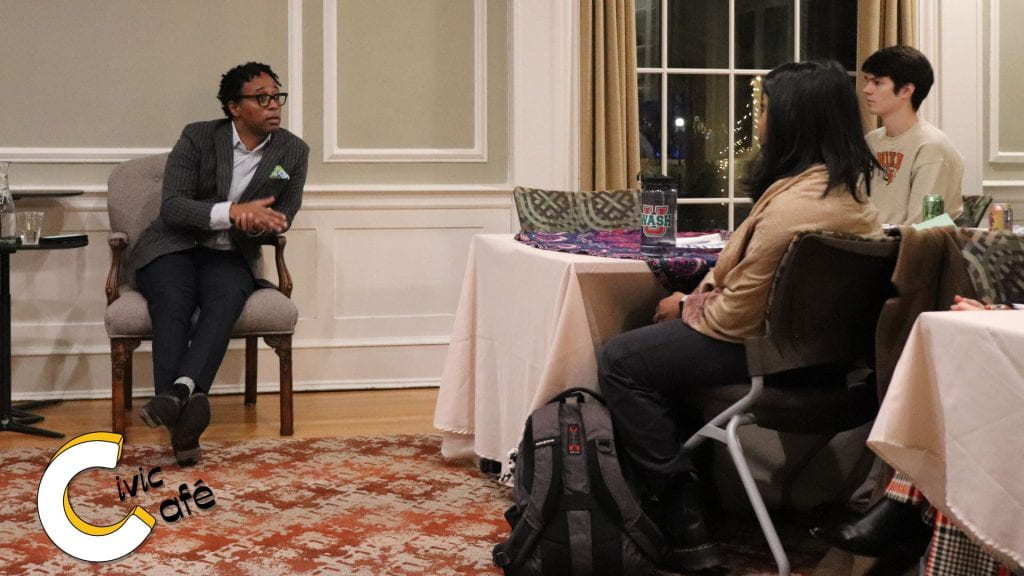
The Gephardt Institute welcomed Wesley Bell, prosecuting attorney for St. Louis County, to its Jan. 31 Civic Café. A weekly event, Civic Café hosts guest speakers from WashU and the St. Louis region with students for salon-style conversations on civic topics and civic skillbuilding.
Elected in 2018, Wesley Bell became the first African American to hold the office of prosecuting attorney for St. Louis County. He represented hundreds of disenfranchised clients while working as a special public defender in the county, where he focused on decreasing mass incarceration through data-driven policies and practice. Bell also led his own criminal defense practice and served as a criminal justice professor and municipal court judge. And as a Ferguson City Councilman, he helped to negotiate and implement the City of Ferguson’s consent decree with the U.S. Department of Justice.
The event opened with remarks by the Gephardt Institute’s graduate assistants for student civic learning, Alex Devaux and Lindsey Owens, and self-introductions of everyone in attendance. Bell began the night reminiscing about how he came to be so involved in the St. Louis community. Originally from the North County area, he discussed how he had an early awareness of the criminal justice system and the disparities many faced when dealing with law enforcement and fair trials. He earned his Bachelor’s degree from Lindenwood University and his law degree from the University of Missouri; Bell’s first job out of college was at a public defender’s office.
“My mission was always, ‘I want to make certain that individuals who are charged with crimes have representation. Even if they don’t have money, they’ll have at least one good attorney working,” he said. “And so I started with the public defender’s office.”
Bell was candid about the difficult cases he dealt with at that time. Not only did this include seeing firsthand how the justice system treats those who deal with mental health issues and substance abuse, but also how the cycle of incarceration can affect even those who are innocent. It is through these experiences that Bell came to understand the impact he could make by becoming a prosecuting attorney. Since then, he’s implemented a successful diversion program for people facing mental health and substance abuse issues, and helped introduced bills aimed at holding police and law enforcement accountable for crimes.
The night ended with Bell answering students’ questions. One student asked what it was like working with policy and law-making in Missouri, especially with how many contentions exist in the state’s legislature. Bell was transparent about the many complications he’s faced in his career, especially in regard to navigating public discourse on highly contentious topics such as the death penalty. Despite this, he added that he remains hopeful for the current political landscape of St. Louis and confident in our ability to change the narrative for the better.
“I think [St. Louis] is a sleeping giant; and I think that if we can keep our talent here, our brightest days are definitely ahead of us,” said Bell to close the night.